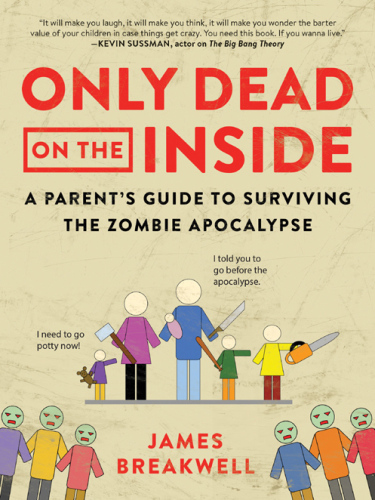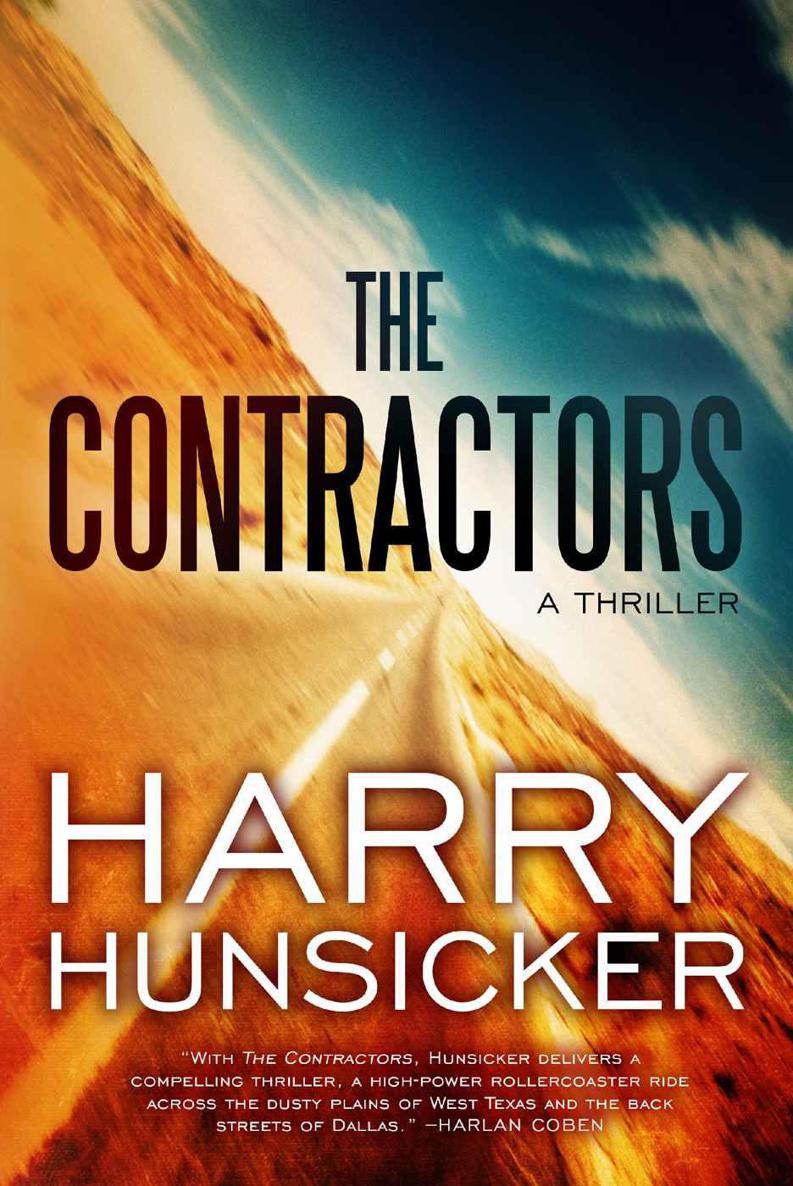oleebook.com
Silent Coup de Claire Provost
de Claire Provost - Género: English
Sinopsis
As European empires crumbled in the 20th century, the power structures that had dominated the world for centuries were up for renegotiation. Yet instead of a rebirth for democracy, what emerged was a silent coup namely, the unstoppable rise of global corporate power.
Exposing the origins of this epic power grab as well as its present-day consequences, Silent Coup is the result of two investigative journalist's reports from 30 countries around the world. It provides an explosive guide to the rise of a corporate empire that now dictates how resources are allocated, how territories are governed, and how justice is defined.
Descargar
Descargar Silent Coup ePub GratisLibros Recomendados - Relacionados
Reseñas Varias sobre este libro
Thanks! Now I have ten times the anxiety I already had and I knew democracy was dead already.
Thanks for the ARC.
I am so glad I read this book.11 s Randall Wallace586 460
There is a silent coup against democracies around the world and as activists we must match its ambition, coordination and long-time horizons. By 1970, there were 7,000 corporations operating across borders. By 2011, there were more than 100,000 multinational enterprises. No country has jurisdiction over all of their activities. There are international investor-state tribunals that function as a global supreme court. There is a corporate control over the use of force globally. Latin American activists get threatened by the paramilitaries who say to them that they are going to kill us because we are working for the campesinos, because we are training them to defend their land. Honduras activist Jose Angel Flores was killed even while under police protection. Morales wanted Bolivia not to just export lithium but to make batteries.
South Africa: Economic apartheid has thrived since 1994. Black South Africans are poorer, white South Africans are richer, with only a smattering of change between. Iran: The US and UK denied their involvement in the coup for years, but it was confirmed in declassified CIA files published in 2013 by the US national security archive at George Washington University. Guatemala: The US coup there and CIA involvement was evidenced by files declassified in the late 1990s including an instructional guide on assassinations.
England: After nearly four centuries of colonial activity, the UKs empire collapsed in little more than two decades after the end of the Second World War. When conservative Margaret Thatcher finally died in 2013, she was given a funeral that cost taxpayers more than three million pounds. Expensive UK praise for a woman who boldly committed war crimes in Ireland, abolished free milk for school children, robbed working people of their rights, and destroyed Britains manufacturing industry (leading to high unemployment).
New systems to protect and expand corporate interests were effectively pioneered in poorer countries, often under the guise of development, before expanding to threaten democracies everywhere. Aid to Tanzania benefited not the poor, but foreign tourists and tourism companies. Aid paid for the fancy hotels in Zanzibar to have a stable power supply for businessmen, no doubt so they wont have to shower or pay their hookers in the dark.
Aid also is used to force farmers to become dependent on foreign seed Colonialism 2.0. One African official said, with large-scale farming, you are turning small farmers into mere laborers. Aid that exploits small-scale farmers. Corporations use the ISDS system (International Investor-State Dispute Settlement System) to challenge government actions around the world. El Salvador finally got the El Dorado mine off its back, but to do so, it paid out $12 million in legal fees while collecting only $8 million paid and that only after a year of El Salvador waiting. Mining companies as new imperialists.
GlaxoSmithKline was fined $3 billion in the US after pleading guilty for bribing doctors and encouraging the prescription of the antidepressant Paxil to children, even though the drug was unsuitable and unapproved for this use. Know that there is a whole field of business called the migration security market and that it is a $30 billion market. Much of the land around Los Alamos was taken from local indigenous and Hispanic families and never returned.
Israel: An Israeli politics professor told the authors, that the occupied territories act as a lab for ones military learning to control people by force. These companies can say Hey this was used by the IDF, it must be good. Retired brigadier general Shlomo Brom agreed, Of course, why not? Hewlett-Packard developed biometric ID used at West Bank and Gaza checkpoints. New Hewlett-Packard slogans: We make Apartheid Smarter, Better, Making the UN Cringe since 1967, and Time to Settle into Settler-Colonialism. And Zionist Special Thanks to Magal Security Systems for surrounding Gaza with fencing. Want to surround people illegally cattle, and fence them in with no place to go? For the opposite of hospitality, count on Magal Security.
Many Central American countries celebrated their independence from Spain in 1821 after almost three centuries of colonial rule. Thank Chelsea Manning for us humans being able to see the WikiLeaks Collateral Murder video on You Tube, and watch US soldiers brazenly kill a dozen unarmed civilians and then sadistically laugh about it releasing that video put Chelsea in prison for seven years from 2010. In El Salvador, some of the UKs development money (is) going to gated communities. Look closely and you will see how development means the rich get richer. In Myanmar, IFC aid helped the Shangri-La luxury hotel where guests in business suits can now eat fresh lobster and skewers of large prawns. Thanks to IFC aid, bellhops there can wear gloves. Gone was any sign of poverty. The Shangri-La also includes an on-call call doctor and high-speed Wi-Fi, no doubt so the poor who cant afford to be there can cruise the internet during their ample spare time. Poland and Tanzania both went through a privatization drive selling off state assets. Poland signed dozens of treaties giving foreign investors rights to challenge it at international tribunals.
Fun Facts: High-quality pink diamonds are valued at up to $700,000 per carat. US department of labor statistics shows that our country now has 1.1 million security guards yet only 660,000 police and sheriff s officers. India has 7 million employed private security and 1.7 million police officers.
This book (as you can see) offers some interesting info. But with rave by Noam Chomsky, Vandana Shiva and John Pilger I expected this book to be riveting, and really tell me the long history of how corporations overthrew democracy, and not the story of two people flying around the world and telling you what they saw and learned. For a better read, try Joel Bakens 1st book, the Corporation which was a wonderful five-star book while this is a two-star book, as it was ok, but Ill give it three stars, because three of my favorite critics d it.
8 s Justbreathe84
Jaw dropping information about how corporations have muscled the "free" market under their control instead of trusting it as they claim is for the best.
A true account of well known multinational corporations and aid programs continuing the work of colonialism by knowingly manipulating the outcome with money, power and violence.
Everyone should read this book so we have a hope of changing humanity's bleak future.4 s Morgan165
"Silent Coup: How Corporations Overthrew Democracy" is a must read if you wish to have even a clue about how the planet's human social political and economic system is being controlled by international corporations. I use the term "book" advisedly because it is little more than an outline and first draft of a passel of notes by two obviously undertrained journalists. The duo would follow a lead a little ways, then hop on a plane and dash off somewhere else leaving us dangling in a tangle of innuendo and undocumented assertion. Referring to an AP style book or having a professional editor would have been enormously helpful...1 Jennifer509 27
As European empires fell throughout the first half of the 20th century, the power vacuum left behind was rapidly filled by global corporate powers, supported by an international aid and development system that too often funneled government money into the hands of businesses out to make a profit, not necessarily to help others. Provost and Kennard spent years criss-crossing the globe in search of case studies that revealed the many ways that corporations have subverted democracy and overrode the power of elected governments: taking governments to court through the World Bank's International Centre for the Settlement of Investment Disputes, privatizing public utilities, avoiding human rights obligations, creating corporate armies and hiring mercenaries, and more.
This book shines a light on the web of corporate intrusion into governance across the world, and it's way bigger than you think. If you wonder why your government doesn't do more to fight global climate change or why it's so difficult to get politicians to act on behalf of citizens, this book will help explain why. Sadly, it doesn't include a whole lot of suggestions for how to change the situation, other than to encourage grassroots resistance and to call out the media for not covering these matters. It also has an occasionally uneven writing style that makes it challenging for the reader to follow a train of thought (something I hope will be addressed in the final edition). Still, it's worth the read to help you recognize the many ways that corporations will advance their primary goal of making profits.
Thank you, Bloomsbury Academic and NetGalley, for providing an eARC of this book. Opinions expressed here are solely my own.business current-events economics ...more1 Jack K. Boyles114
To paraphrase Ray Bradbury 'facts on their own are useless, you need people to contextualise them.'
The Silent Coup is a book full of facts, stories, and ugly truths. Democracy is a veneer to a hidden Illmocracy -- a new term whereby people have the trappings of Democracy and no freedom. The world is run by lobbyists and corporations who can use laws, a form of democratic process, to hinder democratic rights. If this sounds something politics nerds know, it's because we do. However, the book does shine a light on how, via investment banks and laws that allow companies to sue states, thus rendering governments inert.
Though, as I stated before, these facts are useless without context. In fairness, each chapter does contextualise that chapters point, but there's no overarching element, no through-line that ties it all together. And while, as a political nerd, I can tie them up for myself; it's the writers job to do that and make me see it in a way that adds deeper understanding.
I've never read a book where I've gained so much, points that'll help me in potential projects, yet so little.
The book is to concerned with telling you what they found out, instead of what everything as a cohesive hole. It's a greatest hits album, instead of a concept album.1 J Earl2,151 95
Silent Coup: How Corporations Overthrew Democracy by Claire Provost and Matt Kennard looks at the history and specific case studies that illustrate how corporations have rigged the international system to serve their investors at the expense of those living in the various countries.
Looking at how the end of explicit colonialism led to plans to make sure that any peoples gaining independence and potentially democracy would not be able to interfere with the former colonial powers, now embodied in large multinational corporations, continuing to profit off of their backs. One of the main instruments is a little known but powerful court at the World Bank, through which these corporations can force countries to either capitulate to their demands or risk destabilization. The suits brought are often more than these countries could pay, which leads to the corporations overriding any laws and policies these countries may have, thus "overthrowing" or, often more accurate, circumventing the democratic sovereignty of that nation.
I am leaving out many details and almost all of the nuance, but Provost and Kennard bring both the big picture and the minute details into focus for the reader.
I saw one poor guy who thinks percentage of a book based on his little Kindle is a measure of how well researched a book is. He neither understands qualitative versus quantitative documentation nor what generally goes into investigative journalism. Forgive him, he didn't start reading much until late in life and hasn't learned to be a discerning reader. He also recently learned a little about the broad topic of corporatism and throws the term around as if it is all-encompassing. Ignore it. Corporatism, while not mentioned here, is a part but not the whole of the story. This book is about the global situation and the international structures that have been put in place to override democratically established governments and policies.
Also, this is a big picture book about the dark side of globalization. Some people who might think their particular country has to be the center and bulk of any book will totally miss the point of the book and lament that they didn't read enough about their domestic situation in a book about globalization. Go figure!
For those who want to better understand how and why corporations seem to always get what they want even in countries that have laws that would specifically prohibit what they want to do will learn a lot here. It is also important to understand that the planning for the system now in place began over half a century ago, so history buffs will also find a lot here to appreciate.
Reviewed from a copy made available by the publisher via NetGalley. Jeff1,399 128
Flawed Premise And (Slightly) Lacking Documentation Mar Otherwise Intriguing Discussion. Make no mistake - Provost and Kennard show quite a few corporate abuses in several different areas throughout this book, and they do in fact make a strong case that this has influenced government to a very strong degree in the post WWII era. Where their premise is flawed (which is where one of the two stars deducted comes from) is that they constantly state that this is "overthrowing democracy" when in fact it is *utilizing* democracy to effect a form of democracy known as "corporatism" - which is a term the authors never once use in the text at all, and which is actually much more precise to their overall premise. The other star deduction comes from the bibliography coming in at just 18% of the text, which is slightly under the 20-30% that is more typical of such texts in my own experience. (Though given how many books of late are coming in closer to 15%, I may in fact need to examine all relevant data and perhaps revise this down?)
Still, even with the flawed premise and not quite enough documentation supporting it, this really is quite an eye opening look at the various abuses of corporate power across the globe and how they have caused quite a bit of harm and perhaps unintended consequences, and for these looks alone, it is absolutely worthy of reading and could enhance the overall discussion of related topics. Recommended.3 s1 comment Tom Manning63 1 follower
This is a thoroughly researched book from two of the most important journalists working today. Provost and Kennard follow a path of Kangaroo courts, corporate militias and the exploitation of aid money to reveal how corporations routinely undermine democracy across the globe.
The book itself is written very well and while it's often a heavy read with lots of acronyms and figures, the pair do well to give the book a strong narrative structure by focusing on the stories of those affected. The special economic zones (SEZ) in China, Cambodia and Myanmar made for quite shocking reading where corporations had incentives paying less tax and where unions would be squashed and often blocked from organising. It made for depressing reading seeing how international development and aid money would be used to fund gated communities and increase inequality in countries that need the money the most.
This is a really important piece of investigative journalism.non-fiction-2023 Donna Hines (The Secret Book Sleuth)212 31
This book did a fine job describing how corporations overthrow government. What it didn't do for my needs is define that in the United States of America which is corrupt beyond repair and instead discussed the European role with exclusivity provided via the United Kingdom.
I was hoping to delve into the under belly of what happens in our country but sadly this centered upon WWII and the fall out that happened during said time.
Unfortunately, I was only able to complete roughly 39% and will happily take a DNF as it wasn't up to par nor in line with what I had hoped it would eventually become and I lost interest.
Thank you to Claire Provost and Matt Kennard for this ARC in exchange for this honest review.amazon-kindle netgalley Lauren Hollister1 review
Autor del comentario:
=================================












